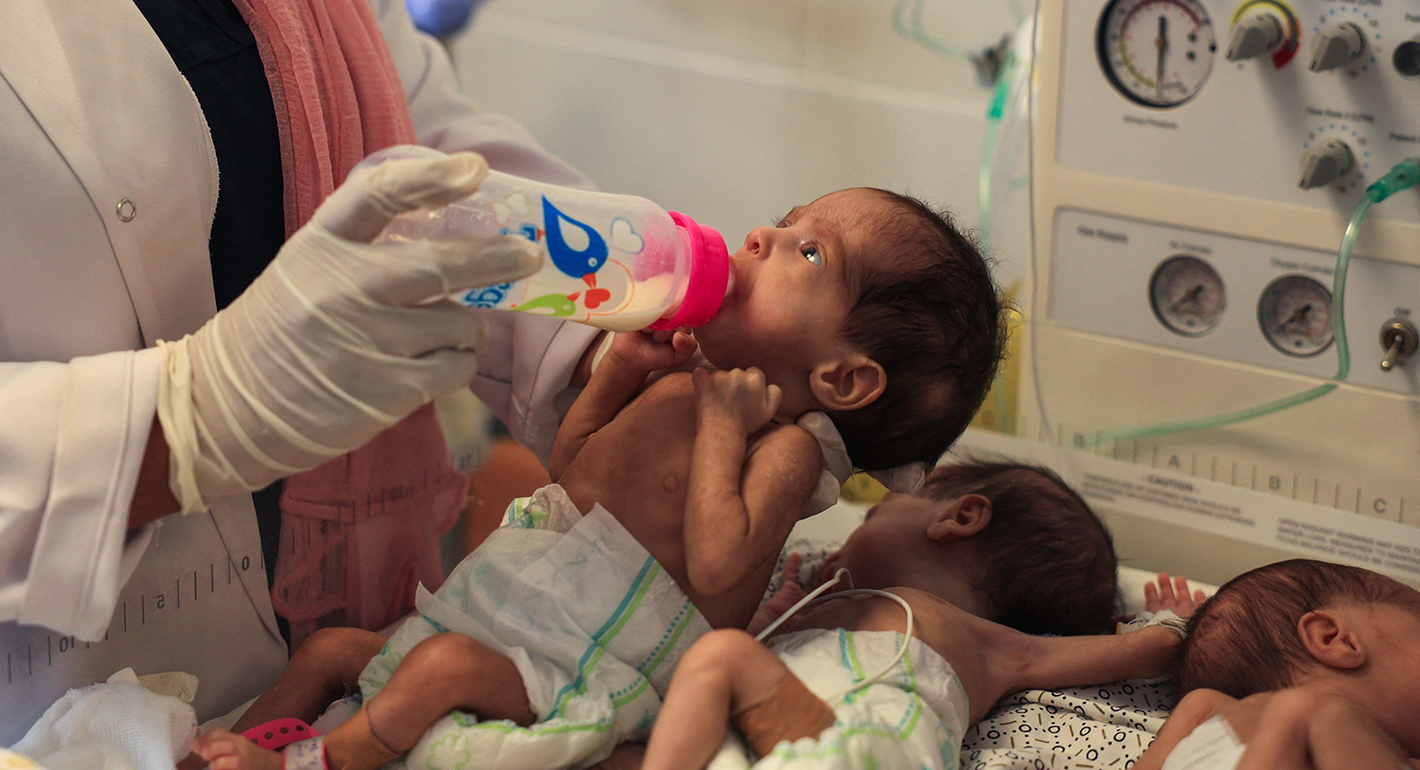Palestinian Ministry of Health statistics said that about 60,000 pregnant Palestinian women in the Strip suffer from malnutrition and dehydration because of the war and the scarcity of food supplies entering the Strip. Women constitute 49 percent of the Gaza Strip's population, most of whom are of childbearing age. There are about 5,000 women giving birth every month in harsh, unsafe and unsanitary conditions. Last February, UNICEF warned that the sharp rise in malnutrition among children and pregnant and lactating women in the Gaza Strip poses a serious threat to their lives.
Birth Under Bombardment, a documentary produced by Sada, sheds light on the suffering of Palestinians in Gaza with a specific focus on pregnant women. Among these is Alaa Taha, who was displaced from her home and recounts her perilous journey out of the north of the Gaza Strip. Traversing tens of kilometers on foot, Taha's journey was marred by falls that resulted in severe bleeding and endangered her unborn child.
On the other hand, Falestine Abu Wardeh's experience reveals the severe healthcare crisis in Gaza. Abu Wardeh narrowly escaped death during a difficult caesarean section, when her bladder was accidentally damaged and doctors were forced to removed her uterus—a result of medical oversights amid scant supplies, including anesthesia.
The situation is similarly dire at Rafah's Emirati Hospital, which specializes in obstetrics and gynecology. As reported by its director, Haider Abu Sneema, approximately 1.5 million Palestinians—including 60,000 pregnant women—have sought refuge in Rafah and have overwhelmed the hospital. With around 400 pregnant women arriving every day, and the maternity department only able to deliver 80 to 100 daily births, the healthcare system is under immense strain.
Indeed, the medical infrastructure throughout Gaza is beyond overstretched, with hospitals operating at less than a quarter of their pre-war capacity. This means that mothers and newborns are often immediately discharged to make beds available for other patients, posing grave risks to their well-being.
Beyond childbirth, these women face severe shortages in food, water, baby formula, and other essential supplies due to Israel’s restrictions on humanitarian aid. The ensuing malnutrition has hampered their ability to breastfeed—as experienced by Warda Matar, a new mother sheltering in the Nuseirat camp, who resorted to feeding her newborn dates.
Since the military operations commenced on October 7, 2023, the toll on Gaza has been catastrophic. Over 35,000 Palestinians have been killed and most of them are women and children. Despite these grim statistics, a ceasefire remains elusive, prolonging the agony for Gaza’s civilian population.




